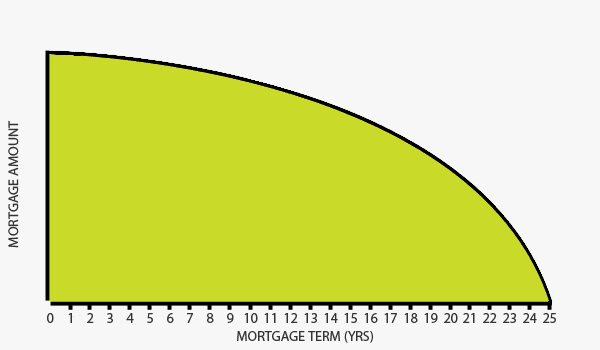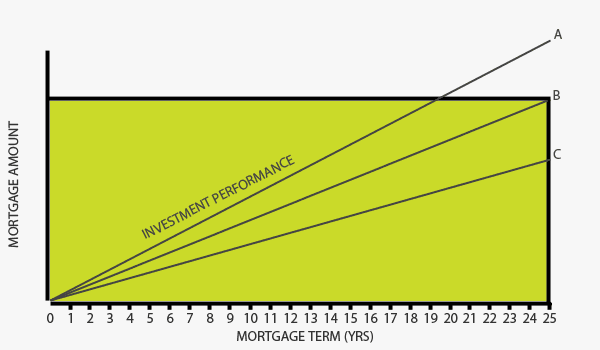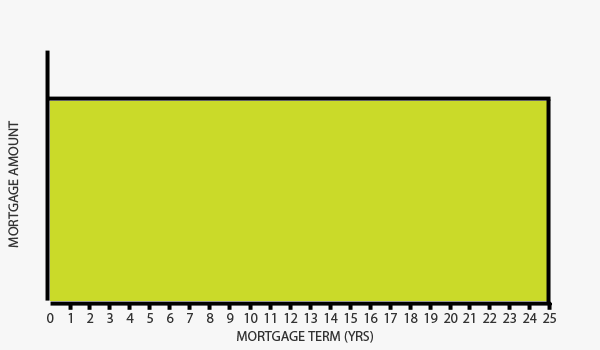Keystone IMC Mortgage Section Methods of repaying a mortgage
Mortgage repayment methods
INTRODUCTION: When you take out a mortgage on a property you will be asked how you intend to repay the loan. You will choose one of the following 4 options:
- Capital & Interest - also known as a repayment mortgage
- Interest only with a repayment vehicle (more on repayment vehicles later)
- Interest only without a repayment vehicle
- Split mortgage - This is a combination of repayment and interest only
Capital and Interest mortgage (repayment mortgage)

- gradually your mortgage balance reduces, building up equity in your home
- each monthly repayment to your lender consists of an element of capital and interest
- the safest way to repay a mortgage so long as all repayments are met on time in full throughout the mortgage term
- suitable for people who would like to guarantee the repayment of their mortgage
- a low risk method of repaying a mortgage
Interest Only mortgage (with a repayment vehicle)

- each monthly payment to your lender consists of interest ONLY
- as no capital repayments are made during the term of this mortgage, monthly costs are lower; however you will not increase the equity in your home
- suitable for people who do not wish to repay the capital until the end of the mortgage term. It is your responsibility to ensure an adequate repayment method is in place to repay the mortgage at the end of the mortgage term
- repayment of the mortgage is self managed by you and would usually be paid from proceeds of the sale of your home, inheritance, savings or investments
- this type of mortgage is not accepted by lenders in all circumstances and recently some lenders have charged higher rates of interest for this type of loan
- this type of mortgage is considered a high risk mortgage compared to that of a capital and repayment mortgage
Interest Only mortgage (without a repayment vehicle)

- each monthly payment to your lender consists of interest ONLY
- pure interest only mortgages are often popular for buy to let mortgages due to the tax benefits
- as no capital repayments are made during the term of this mortgage, monthly costs are lower; however you will not increase the equity in your home
- suitable for people who do not wish to repay the capital until the end of the mortgage term. It is your responsibility to ensure an adequate repayment method is in place to repay the mortgage at the end of the mortgage term
- repayment of the mortgage is self managed by you and would usually be paid from proceeds of the sale of the property.
- this type of mortgage is not accepted by lenders in all circumstances and recently some lenders have charged higher rates of interest for this type of loan
- this type of mortgage is considered a high risk mortgage compared to that of a capital and repayment mortgage
- many mortgage lenders will not allow pure interest only
The problem with interest only mortgages
Obtaining a mortgage on an interest only basis is often difficult. Many lenders now restrict the maximum LTV for interest only mortgages to 75% as they consider this method high risk. Some lenders are now even charging a higher rate of interest for interest only mortgages.
Buy to Let mortgages
The rules and tip above do not apply when the mortgage is on buy to let (see mini glossary on the right for an explanation of buy to let mortgages). In fact it is quite normal for buy to let mortgages to be set up on a pure interest only basis due to the tax benefits. This page doesn't cover tax advice so you should call us on 01394 389449 to talk to one of our buy to let advisors for more help.
For mortgage advice we can charge a fee of typically £295 or we can receive commission from the lender
- Buy to Let
- A mortgage that allows the owner to Let the property to tenants
- Mortgage
- A legal agreement by which a sum of money is lent on the security of property, land etc. If the borrower fails to observe the terms of the mortgage, the lender retains the right to take possession of the property. See also Mortgage basics.
- Capital and Interest
- Repayments on a capital & interest mortgage are made up of capital repayments and interest repayments
- Interest Only
- The monthly repayment on an interest only mortgage consists only of interest and no capital is repaid
- Repayment vehicle
- Such as an ISA, endowment or pension lump sum. A separate provision to repay the mortgage once the term ends on an interest only mortgage
- Equity
- Equity refers to the net value of a property after the outstanding mortgage has been deducted. For example if my property is worth £100,000 and I have an outstanding mortgage of £60,000 then I have £40,000 of equity.
- Loan to value (LTV)
- This is the percentage that your mortgage amount equates to against the purchase price. For instance if you are applying for a mortgage of £50,000 and the purchase price is £100,000 then the LTV is 50% This is quite important as the lower the LTV the better the deal you will get from the lender. For example, someone that requires a mortgage at 75% LTV will get a much better deal than someone that requires a 90% LTV mortgage.
